MercoPress. South Atlantic News Agency
Tag: Brazilian Institute of Geography and Statistics (IBGE)
-
Thursday, June 5th 2014 - 07:20 UTC
High inflation and unemployment challenging Brazilian economy in election year
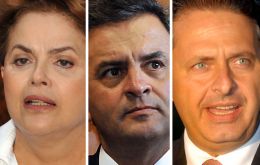
With the World Cup just eight days away, high inflation and unemployment is once again challenging Brazil’s economy, with the impact sure to influence this year’s election campaigns. Investors warned earlier this week that spending promises will undermine the fiscal discipline needed to restore confidence in the country and boost economic growth.
-
Saturday, May 31st 2014 - 06:05 UTC
Brazil's economy grows 0.2% in the first quarter and 1.9% in twelve months
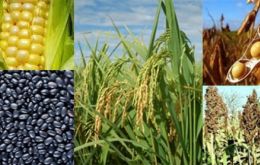
Brazil's economy grew 0.2% in the first quarter compared to the final three months of 2013, a pace slower than economists had forecast, the government said Friday. Meanwhile GDP rose 1.9% relative to the first quarter of 2013, according to figures released by the state-run Brazilian Institute of Geography and Statistics, or IBGE.
-
Thursday, April 10th 2014 - 06:28 UTC
Brazil's March inflation marks the steepest increase for the month since 2003
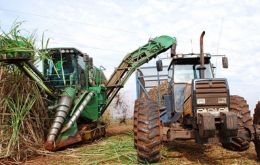
Brazil’s rate of inflation in March picked up at the quickest pace in 11 years for that month, challenging the central bank’s plan to stop raising interest rates soon and complicating President Dilma Rousseff chances of re-election.
-
Friday, February 28th 2014 - 03:28 UTC
Brazil GDP expanded 2.3% in 2013; agriculture again the main engine
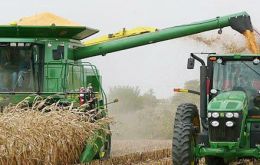
Brazil's economic output grew 2.3% in 2013 for a third straight year of modest expansion by Latin America's biggest economy, the government announced on Thursday. GDP for the final quarter of the year rose a 0.7% compared to the third quarter, according to Brazil's Institute for Geography and Statistics, IBGE.
-
Saturday, February 15th 2014 - 10:21 UTC
Economic activity down for a second straight month in Brazil

Brazilian economic activity fell for the second straight month in December, declining 1.35% relative to November, the Central Bank said in a report Friday. The Economic Activity Index, IBC-Br, considered a reliable predictor of GDP performance, was up 2.57% for all of 2013.
-
Saturday, February 15th 2014 - 05:46 UTC
Despite adverse climate Brazil expects record harvest: 193.6 million tons
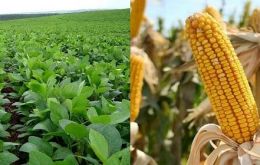
Weeks of drought and heat have hit Brazil's soy and corn production, but the agriculture ministry still predicted a record 2014 harvest. Corn production is set to total 75.5 million metric tons, down from a January estimate of 79 million, state food supply agency Conab said in its monthly report.
-
Saturday, January 11th 2014 - 06:49 UTC
Brazil's inflation off target in 2013 and prospects in election year not encouraging

Brazilian consumer prices ended 2013 higher than expected at 5.91%, above the upper limit of the government target, after inflation surged in December, official statistics released Friday showed. The Brazilian Institute of Geography and Statistics (IBGE) said last month's inflation figure of 0.92% was the highest for December since 2002, and compared with 0.54% a month earlier.
-
Saturday, December 7th 2013 - 06:03 UTC
Brazil inflation slows down in November to an annualized 5.77%
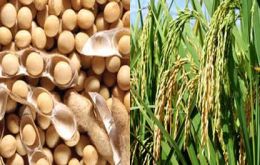
Brazil's annual inflation cooled in November falling to 5.77%, reported the Institute of Geography and Statistics, IBGE, on Friday. The November reading was the lowest since registering 5.84% in December 2012.
-
Thursday, October 10th 2013 - 00:57 UTC
Brazilian annual inflation to September the lowest in nine months
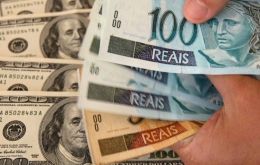
Annual inflation in Brazil reached its lowest level in nine months, but the country still shows signs it hasn't yet come to grips with persistently higher prices. Brazil's 12-month inflation reading continued to retreat, falling to 5.86% in September, the Brazilian Institute of Geography and Statistics, or IBGE, said Wednesday.
-
Friday, September 27th 2013 - 21:40 UTC
Jobs market remains strong in Brazil; unemployment down to 5.3% in August

Brazil's jobless rate fell unexpectedly and salaries jumped in August from the previous month, government data showed this week. It was the second consecutive month-to-month drop in Brazil's jobless rate, which remains close to record lows.
